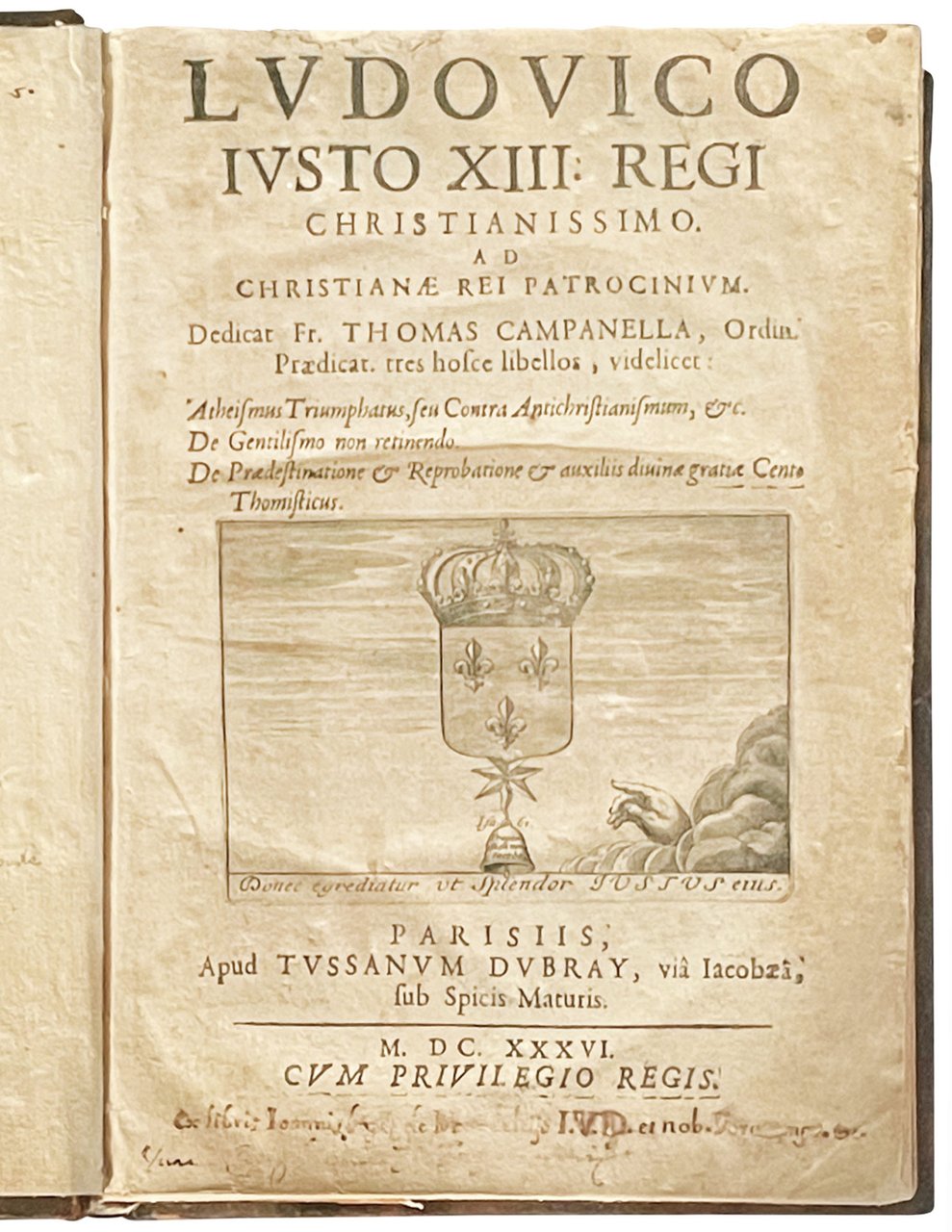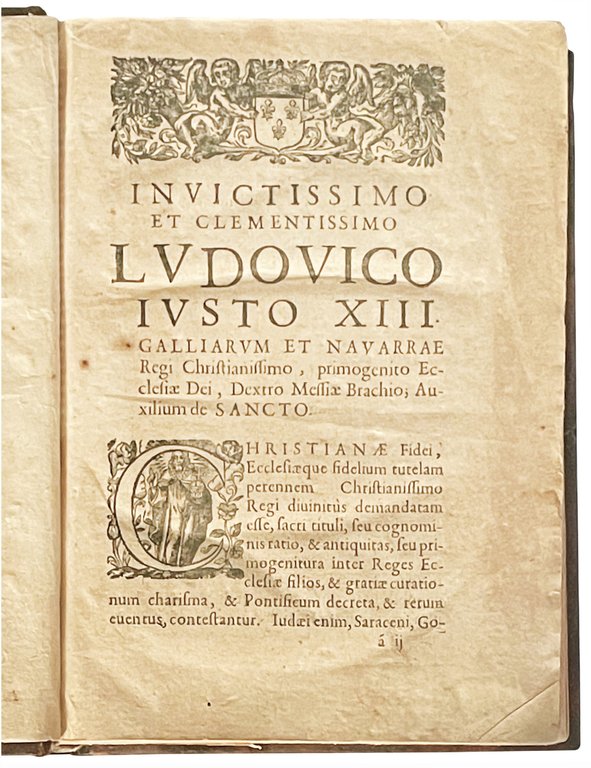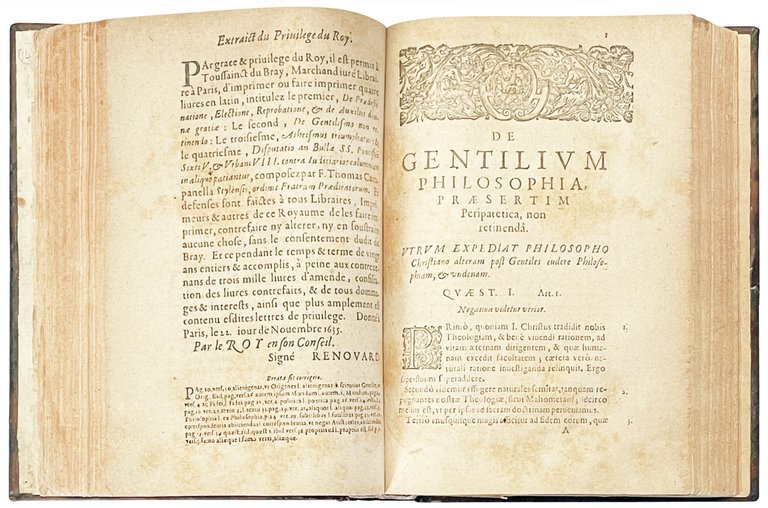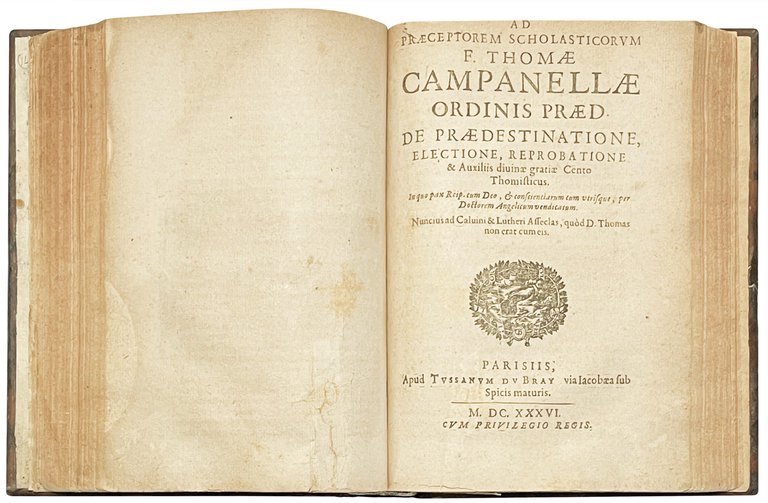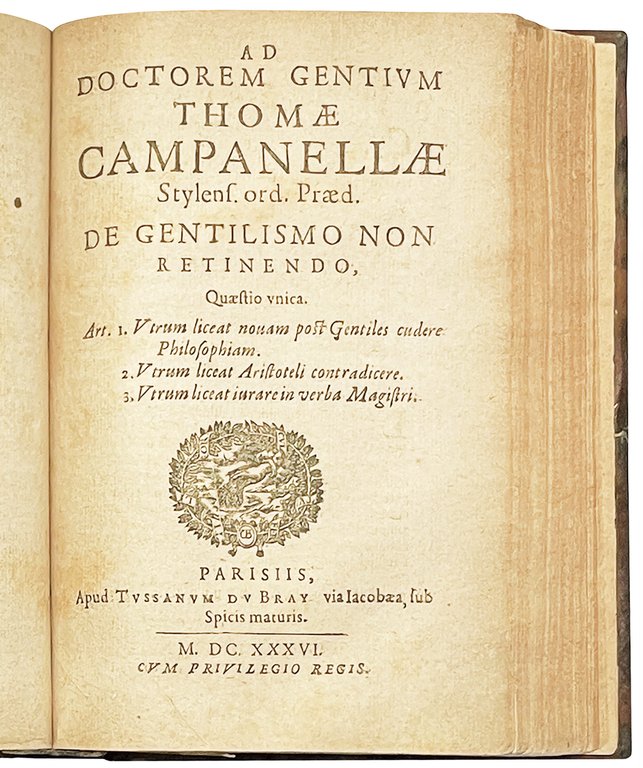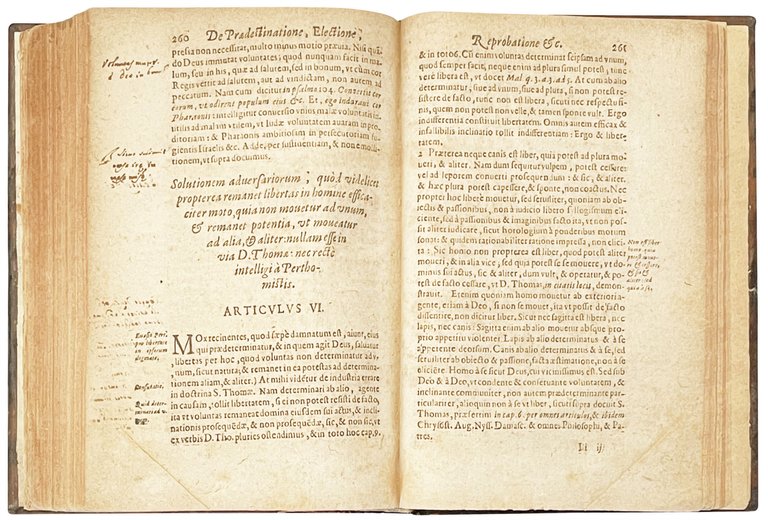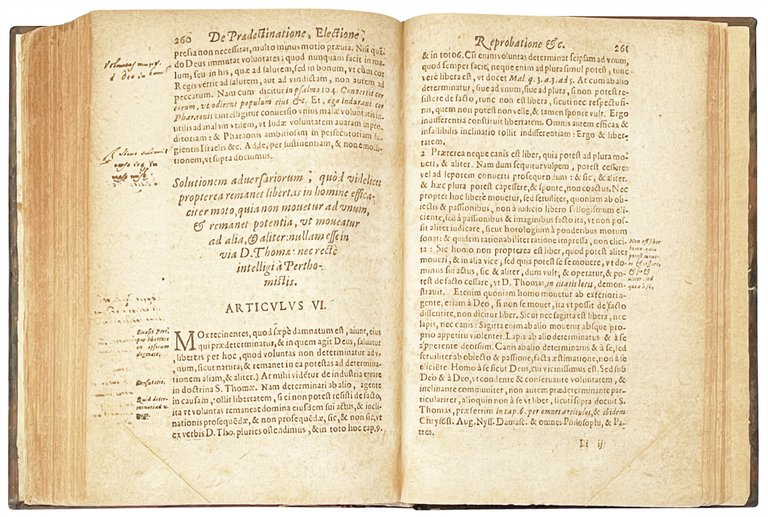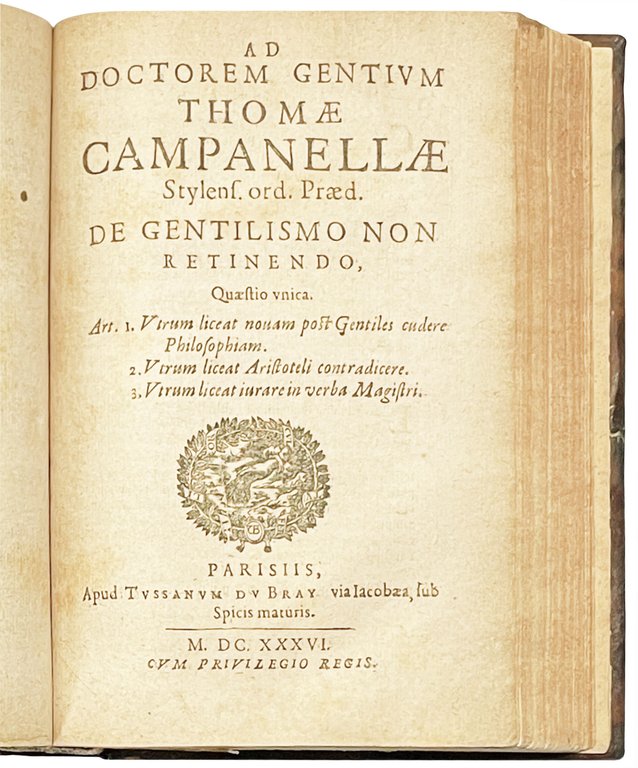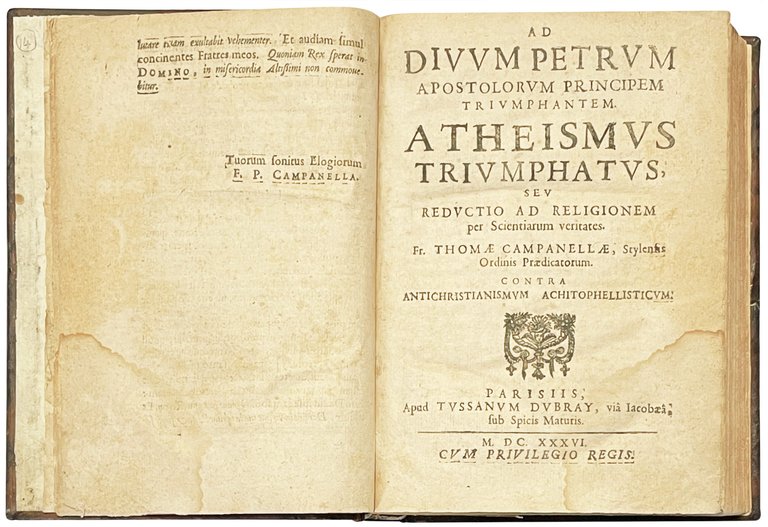Ludovico Iusto XIII regi christianissimo, ad Christianae rei patrocinium, dedicat Fr. Thomas Campanella, ordin. praedicat. tres. hosce libellos, videlicet: Atheismus triumphatus, seu Contra antichristianismum, etc. De gentilismo non retinendo. De praedestinatione et Reprobatione et auxiliis divinae gratiae Cento Thomisticus
Ludovico Iusto XIII regi christianissimo, ad Christianae rei patrocinium, dedicat Fr. Thomas Campanella, ordin. praedicat. tres. hosce libellos, videlicet: Atheismus triumphatus, seu Contra antichristianismum, etc. De gentilismo non retinendo. De praedestinatione et Reprobatione et auxiliis divinae gratiae Cento Thomisticus
Metodi di Pagamento
- PayPal
- Carta di Credito
- Bonifico Bancario
- Pubblica amministrazione
- Carta del Docente
Dettagli
- Anno di pubblicazione
- 1636
- Luogo di stampa
- Paris
- Autore
- CAMPANELLA, Tommaso (1568-1639)
- Editori
- Apud Tussanum Dubray, viâ Iacobaeâ, sub Spicis Maturis cum p
- Soggetto
- seicento
- Stato di conservazione
- Buono
- Lingue
- Italiano
- Legatura
- Rilegato
- Condizioni
- Usato
Descrizione
Two parts in one volume, 4to (224x158 mm.). [24], 273 [i. e. 271], [1] pp.; [4], 63, [9], 65-344 [i. e. 342], [2] pp. Omitted in pagination pp. 257-258 of the first part and pp. 211-212 of the second. Collation: a4 e4 i4 A-Ll4 (verso of ll. i4 and Ll4 blank); [π]2 A-H4 e4 I-Cc4 Cc4 Dd-Tt4 (H4 verso blank). With the engraved coat-of-arms of the king of France on the title page. Section title pages for Atheismus triumphatus (l. e2r), De gentilismo (l. [π]1r), and De praedestinatione (l. e1r). With woodcut initials, head- and tail-pieces. Printer's device on the second and third section title page (ll. [π]1 and I1). Later panelled calf with gilt spine and gilt title on morocco lettering piece, red sprinkled edges (binding slightly rubbed and worn). Ownership entry at the bottom of the general title page, slightly faded ‘Ex libris Ioannis [...] De [...deleys I.V.D. et nob. Jor […]'. Manuscript marginal annotations in the second part. Slightly uniformly browned, some light staining, marginal small restorations to the general title page not affecting the text, all in all a good copy.
Rare second edition of the Atheismus triomphatus, and first edition of the De gentilismo non retinendo and the De praedestinatione.
The Atheismus triomphatus was written in Italian between April and July 1605 under the title Recognoscimento filosofico della vera universale religione contro l'anticristianesimo e macchiavellismo, then completed and translated into Latin in 1607. The work was sent to Kaspar Schoppe (1576-1649), with a request for a German translation. It was Schoppe who suggested to Campanella to change the title from Recognitio verae religionis to Atheismus triumphatus. Finally, in 1631 the philosopher managed to publish the work in Rome, but after only a few months the religious authorities ordered its confiscation. Campanella was unable to have the confiscation revoked, despite his willingness to modify the censored passage with the astrological prognostication of the Church and his repeated protests. He then managed to have it reprinted in Paris in 1636. Like the first edition, this second edition was also placed on the Index.
The De gentilismo non retinendo, written in Naples in 1609-10, and the De praedestinatione, composed in mid-1628, obtained the necessary printing licences at the Sorbonne in 1635. These two treatises were first printed in Paris in 1636, with a dedicatory letter to Louis XIII. Together they form the second part of the Paris edition of the Atheismus triomphatus.
The ideas attributed by Campanella to the atheist (“atheus”) in his Atheismus triumphatus were the same that he preached in Calabria at the end of the 16th century, as testified by the depositions of his companions during the trial of 1599. In the book, the narrating self (“ego”) identifies with the atheist and the reader is thus confronted with a debate of the “I” with itself, which first accepts the atheistic doubts of the politicus that once prevailed in its soul (the pretrial Campanella, who approaches religion from a rational point of view and considers it exclusively as an instrument of power, according to Machiavelli's thought), and then moves on to consider religion as a virtus naturalis inherent to man, and the Christian religion in particular as the most universal and complete, arguing that there is no contrast between Christian law and natural law. The Atheismus triumphatus can therefore essentially be considered as a sort of Bildungsroman, a novel of formation in which the narrator's inner journey from atheism to Christian faith is presented in all its controversy and ambiguity. In fact, the atheist's arguments against religions in the second chapter of the book are so convincing and well explained that they leave the readers, including the religious authorities, with not a few doubts as to what Campanella was really believing; to the point that the opinion spread that the book was actually a crypto-apology, deserving the title Atheismus triumph
